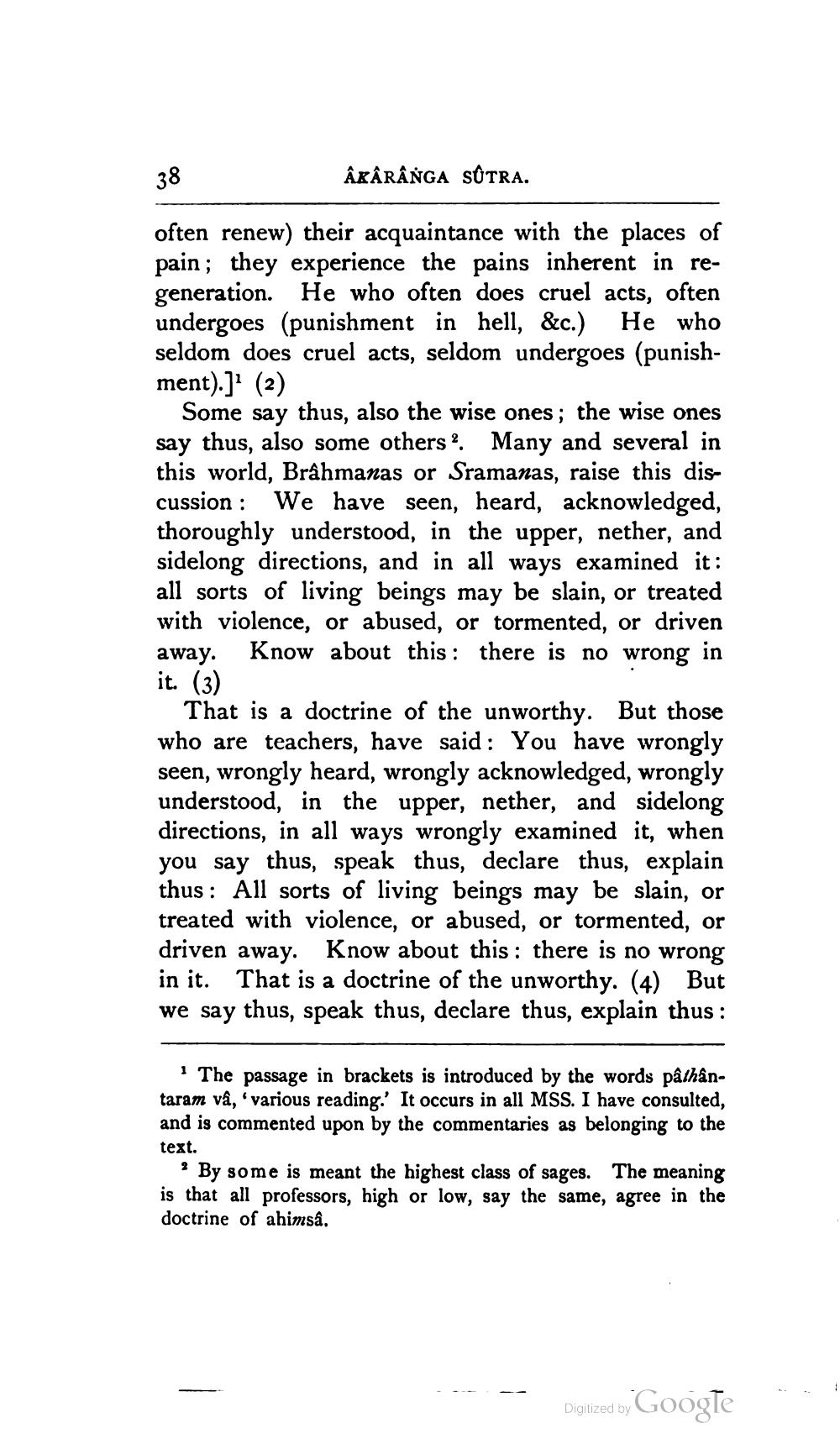________________
AKÂRÂNGA SÚTRA.
often renew) their acquaintance with the places of pain; they experience the pains inherent in regeneration. He who often does cruel acts, often undergoes (punishment in hell, &c.) He who seldom does cruel acts, seldom undergoes (punishment).]" (2)
Some say thus, also the wise ones; the wise ones say thus, also some others ? Many and several in this world, Brâhmanas or Sramanas, raise this discussion: We have seen, heard, acknowledged, thoroughly understood, in the upper, nether, and sidelong directions, and in all ways examined it: all sorts of living beings may be slain, or treated with violence, or abused, or tormented, or driven away. Know about this: there is no wrong in it. (3)
That is a doctrine of the unworthy. But those who are teachers, have said : You have wrongly seen, wrongly heard, wrongly acknowledged, wrongly understood, in the upper, nether, and sidelong directions, in all ways wrongly examined it, when you say thus, speak thus, declare thus, explain thus: All sorts of living beings may be slain, or treated with violence, or abused, or tormented, or driven away. Know about this: there is no wrong in it. That is a doctrine of the unworthy. (4) But we say thus, speak thus, declare thus, explain thus :
The passage in brackets is introduced by the words pâthântaram vâ, various reading.' It occurs in all MSS. I have consulted, and is commented upon by the commentaries as belonging to the text.
? By some is meant the highest class of sages. The meaning is that all professors, high or low, say the same, agree in the doctrine of ahimsa.
!
Digitized by
Digitized by Google




